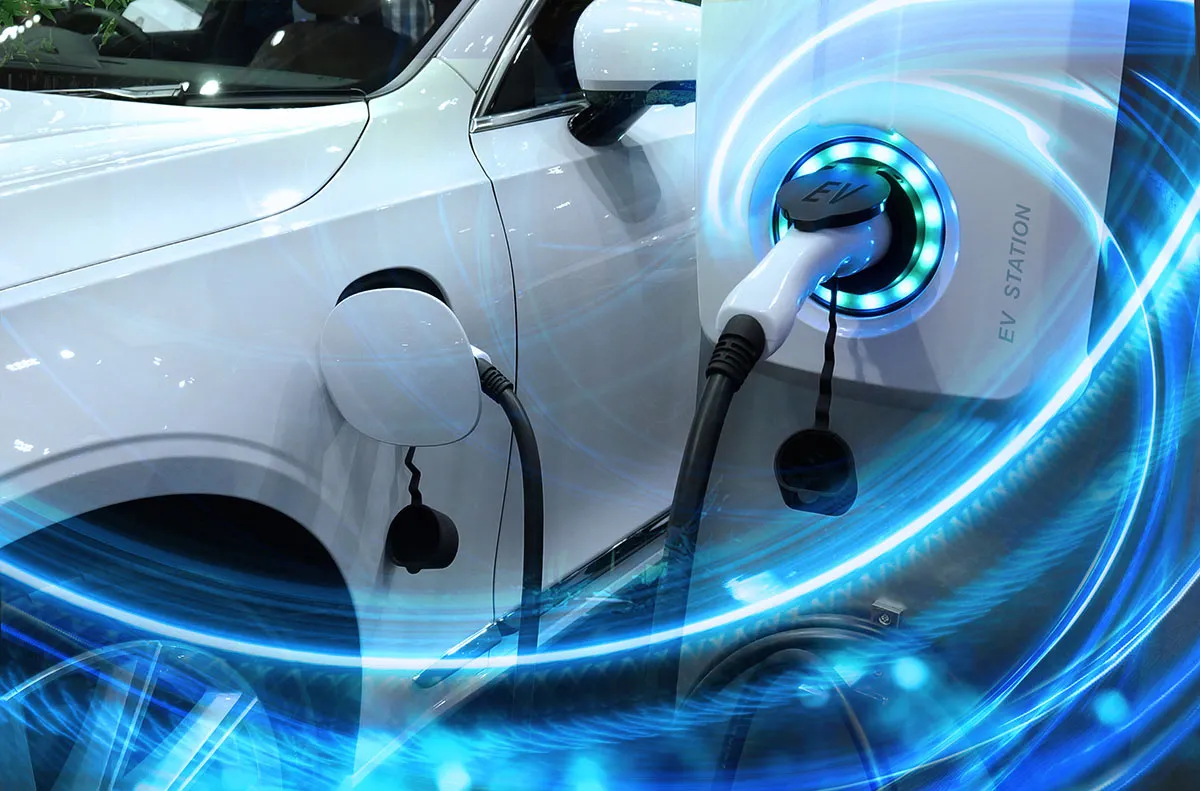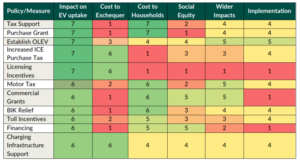In September, the Department of Transport published an Electric Vehicle Policy Pathway Working Group Report. The report, authored by the SEAI and seven different Departments, considers a mix of policies that will help ramp-up EV sales.
Department of Transport publish EV Policy Paper
The Report makes 36 recommendations, including:
- The immediate establishment of an Office for Low Emission Vehicles.
- The retention of existing EV supports – grants for EV purchase and home charging – until at least the end of 2022.
- EVs to retain current levels of VRT relief and positive motor tax treatment until at least the end of 2022.
The Climate Action Plan sets a target of a 51% reduction in transport emissions by 2030 and Action 79 of the Plan commits to developing a roadmap on the optimum mix of regulatory, taxation and subsidy policies to drive significant ramp-up in passenger EVs, this report fulfils this action.
With 41,000 EV’s registered as of July this year there is a distance to go to reach 180,000 EVs on our roads by 2025 and 936,000 by 2030. However, DPER analysis suggests that Ireland’s range of financial incentives is comparable to the most generous incentives available and that subsidising 100,000 EVs, using 2019 levels of supports, would cost the Exchequer between €965 million and €1.23 billion. The time it takes for the market to achieve purchase price parity between ICE and EVs will be a major determinant of how quickly such subsidies can be phased out.
The report cites research on factors which influences consumer’s vehicle choices at three main decision points: pre-purchase, purchase or based on usage and behavioural barriers. Some of the behavioural barriers include:
- Hyperbolic Discounting: People undervalue the future benefits (i.e., lower total cost of ownership for operating an EV) of investing in energy efficient products when faced with a higher upfront cost,
- Status quo bias: People choose for things to stay the same by doing nothing,
- Social norms: Consumer’s choices are guided by the attitudes and behaviours of others in society – EV penetration across public and commercial fleets can play an important role in normalising EV purchasing,
- Choice overload: Consumers are less likely to make a financially optimal decision when faced with an overabundance of choice,
- Information problems: Lack of awareness of lifetime vehicle costs, available charging infrastructure, charging times, average journey lengths and battery ranges.
The historic dependence of the motor industry on fossil fuels, together with unfamiliarity with the new EV technologies can make consumers reluctant to transition to an EV. While recognising that SEAI host the source of public information on EVs in Ireland the report suggests that the current EV communication and engagement strategy could be significantly strengthened to encourage greater awareness and subsequent uptake of the technology. The report proposes that the new Office for Low Emission Vehicles takes charge of an extensive communication and engagement campaign tailored to households, businesses and public sector consumers.
The report considers four policy levers to accelerate EV uptake:
- incentives/subsidisation;
- regulation/legislation;
- infrastructure development; and
- disincentivising ICE vehicles.
Each measure was objectively reviewed and assessed across a range of evaluation criteria and ranked using a scoring system.
The main recommendation is the establishment of a dedicated Office of Low Emission Vehicles (OLEV) within SEAI with policy oversight by the Department of Transport, to provide non-sales-based information and experiences to the public related to EVs. It will commission research, provide information, administer grants, and assist in policy development.
Other recommendations include:
- The retention of most of the current supports until the end 2022 including the purchase grant, VRT relief, LEV Tolling incentives and charging point supports.
- Developing a single interactive portal for mapping the location and availability of all publicly accessible EV charging points.
- Training for the car dealership sector to promote greater EV sales.
- Engaging with Credit Unions to illustrate the lower running costs associated with EVs to expand their product offering to further support EV purchasing.



